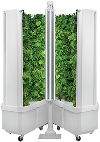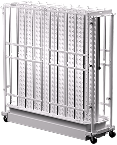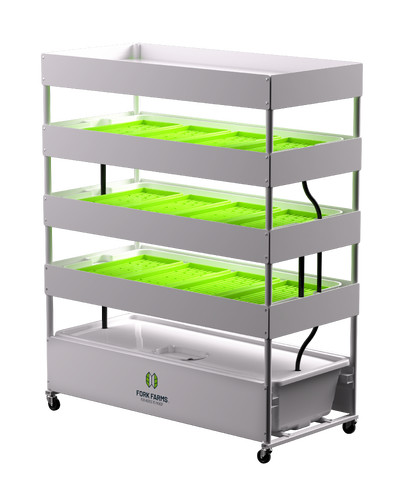Nutrition Security as Preventative Care — Building Health Equity Through Access to Fresh Food
A Fork Farms team member came across a very interesting article from the CDC regarding how the Food is Medicine approach can help to achieve nutrition security and improve health, and we wanted to share a summary with you as part of our Food is Medicine blog series from Fork Farms.
Across the United States, diet-related chronic diseases are now among the top drivers of illness, healthcare spending, and lost productivity. Millions of Americans struggle with food and nutrition insecurity, and the burden isn’t distributed equally. Lower-income families and communities of color are disproportionately affected, often living in areas where nutritious foods are too expensive or simply unavailable.
For too long, our nation’s approach to food access has focused on quantity rather than quality or calories over nutrients. But a powerful shift is underway. Leaders in healthcare, public health, and policy are redefining what it means to be food secure and recognizing that real health begins with nutrition.
The U.S. Department of Agriculture and the Centers for Disease Control and Prevention have begun to elevate a new term: nutrition security. It goes beyond making sure people have enough to eat — it means ensuring consistent access to affordable, nourishing foods that promote wellness and prevent disease.
This shift represents a simple but radical truth: food is not just fuel. Food is one of the most important tools we have to keep people healthy, reduce chronic disease, and improve quality of life.
Healthcare systems are now beginning to integrate nutrition-based strategies into patient care — an approach known as Food Is Medicine (FIM).
The Food Is Medicine model can be viewed as a pyramid of interventions:
At the top: Medically tailored meals and groceries for patients managing complex chronic diseases.
In the middle: Produce prescriptions that help families purchase fresh fruits and vegetables to support healthier lifestyles.
At the foundation: Community-level initiatives that make nutritious food available and affordable for everyone, regardless of income or ZIP code.
These programs not only treat disease but also help prevent it, therefore improving lives and lowering healthcare costs across entire communities.
Why do we care about FIM at Fork Farms?
At Fork Farms, we believe that access to fresh, nutritious food is a human right and a foundational element of health equity. We firmly believe that everyone should have access to fresh food at all times. Through our hydroponic growing technology products — the Flex Farm and Flex Acre — we’re giving schools, hospitals, and community organizations the ability to grow their own produce year-round, right where people live, learn, and heal.
A single Flex Farm can produce up to 25 pounds of leafy greens every month in just 9 square feet of space. For healthcare providers and community partners, this means fresh, nutrient-dense foods can be grown and distributed hyper-locally therefore reducing costs, improving diets, and empowering people to take control of their own wellness.
Why This Matters
The Centers for Medicare and Medicaid Services (CMS) and several major health systems are investing in Food Is Medicine programs across the country, recognizing that healthy food is preventative care. These efforts are being paired with policies that make nutritious food more accessible — from new labeling standards to incentives for healthier school and community meals.
By connecting food access with healthcare delivery, we can solve two crises at once: food insecurity and chronic disease.
As the Food Is Medicine movement continues to grow, Fork Farms is proud to be part of the solution to help transform the way we think about food, health, and equity. When communities have the tools to grow their own fresh food, they gain empowerment, education, and resilience.
Together, we can build a future where every person has the nourishment they need to thrive. Let’s grow together. Contact Fork Farms to learn more about how we can help give the Food is Medicine movement a forward motion.
Important Links:
























